Ocean Exploration Trust
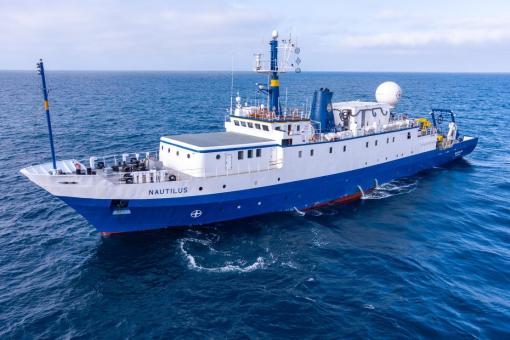
Ocean Exploration Trust (OET) and the Nautilus Exploration Program aim to explore the ocean, seeking out new discoveries in the fields of geology, biology, maritime history, archaeology, and chemistry while pushing the boundaries of education, outreach, and technological innovation. Our expeditions center on scientific exploration of the seafloor, collaborating with the broader research community to identify priority regions and phenomena, and sharing our expeditions with explorers around the world via live telepresence.
Expeditions are launched aboard Exploration Vessel (E/V) Nautilus —a 68-meter research vessel equipped with remotely-operated vehicles (ROVs) — and from other vessels OET charters to deploy our mobile ROV system. During our expeditions, we offer scientists, educators, students, and the global public a remote exploration experience via live video, audio, and data feeds from the field, as well as ship-to-shore interactions direct to classrooms and science centers. We embed educators and students in E/V Nautilus expeditions, gaining hands-on experience in ocean exploration and serving as STEM role models for the next generation. NautilusLive.org offers an immersive experience year-round for explorers to learn more about our expeditions, find educational resources, and marvel at new discoveries.
Ocean Exploration Trust was established as a 501(c)(3) nonprofit in 2007 to support the newly launched Ocean Exploration Program in the United States, which was outlined and guided by the President’s Panel for Ocean Exploration in 2000. OET’s program is national and international, with funding support from federal agencies as well as the private and public sectors. Since the NOAA Ocean Exploration Program was authorized into US law by Congress in 2009, OET has been partnering closely with the NOAA Office of Exploration & Research as well as other government agencies, academic institutions, and the private sector to advance the field of deep-sea exploration and to engage the public and next generation.
Annual Reports
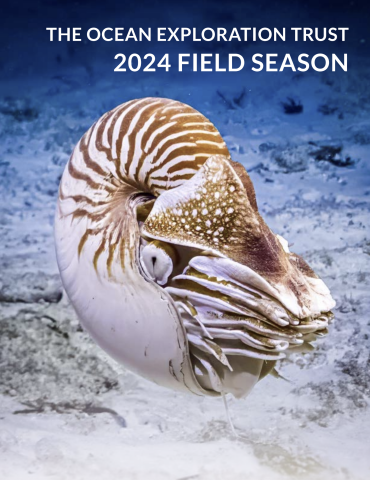
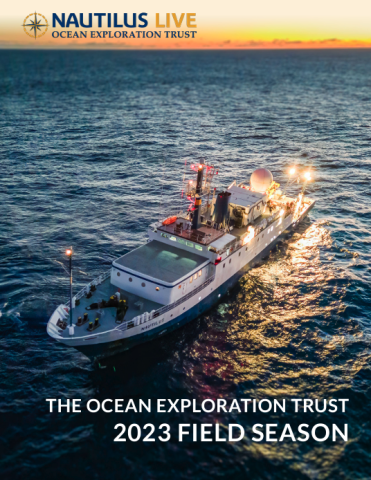
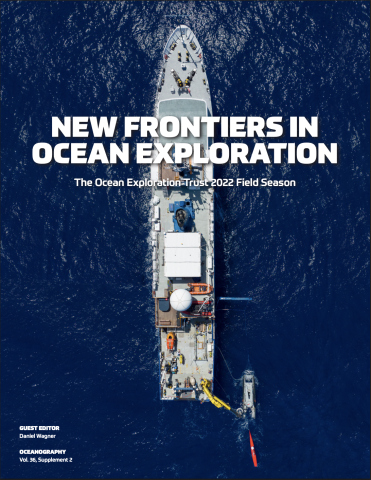
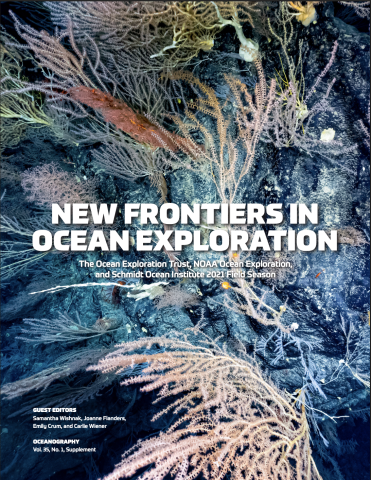
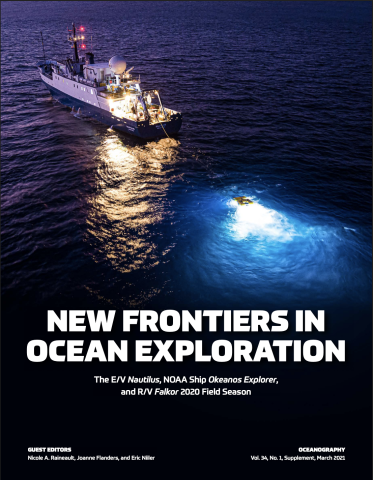
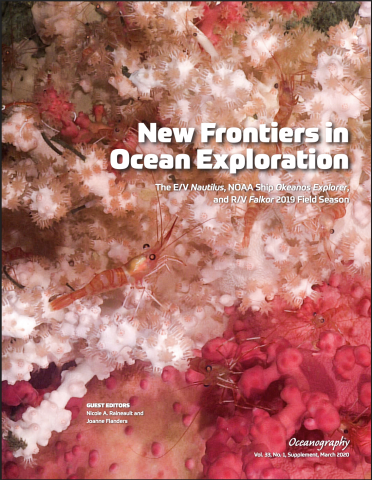
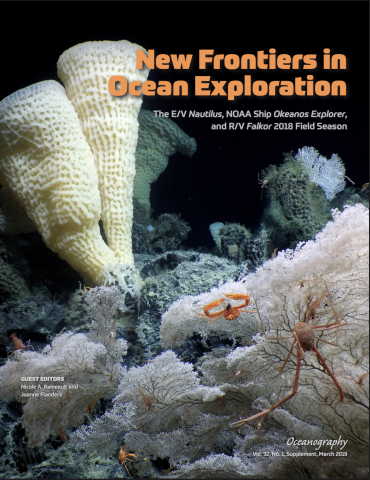
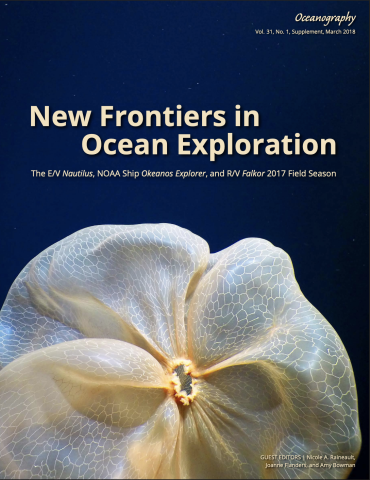
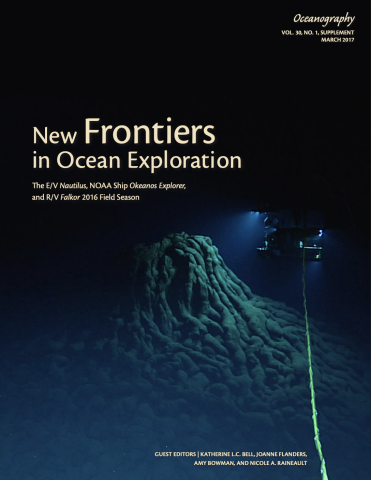
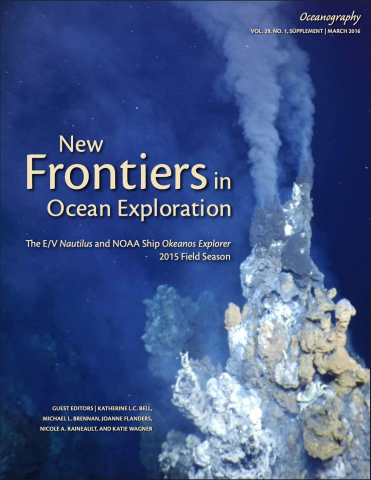
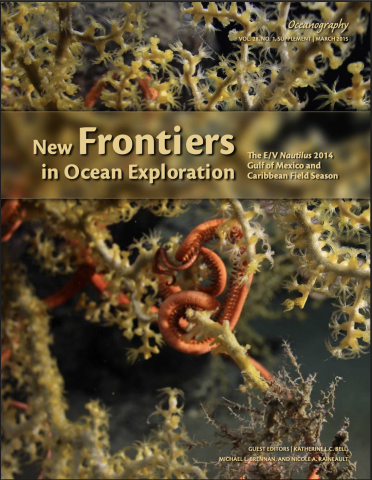
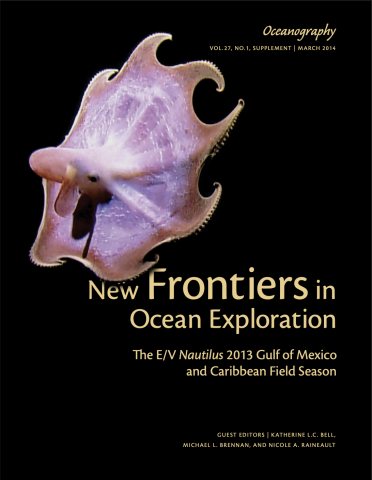
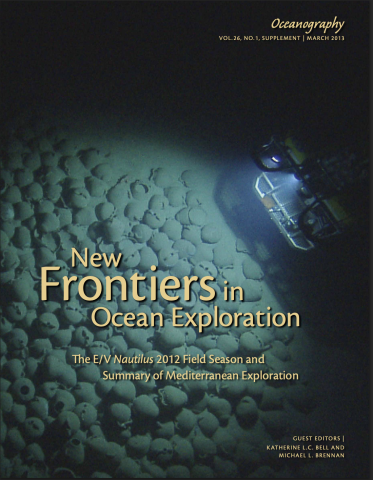
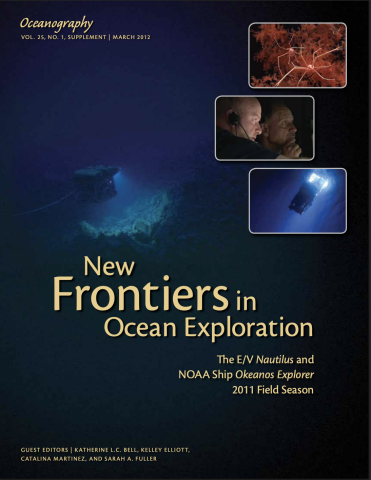
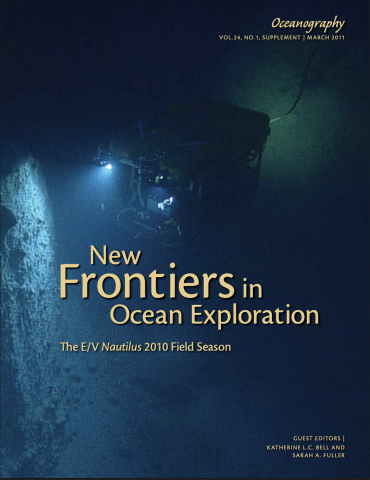
Ocean Exploration Trust Milestones
2007 -- OET was incorporated as a 501(c)(3) nonprofit
2008 -- OET acquired R/V Alexander von Humboldt, now E/V Nautilus.
2009 -- E/V Nautilus deployed for its first expedition season with a 3-week expedition in Turkey.
2010 -- E/V Nautilus deployed for a 4-month expedition in the Mediterranean Sea.
2011 -- E/V Nautilus deployed for a 4-month expedition in the Mediterranean, Aegean, & Black Seas.
2012 -- OET established an MOA with NOAA Office of Exploration & Research; OET hosted a community workshop to define exploration priorities in the Caribbean; E/V Nautilus deployed for a 2-month expedition in the Black & Aegean Seas.
2013 -- OET crosses the Atlantic Ocean with E/V Nautilus deployed for a 4-month expedition in the Gulf of Mexico & Caribbean Sea; OET installed a Kongsberg EM302 aboard E/V Nautilus.
2014 -- OET hosted a community workshop to define exploration priorities in the Eastern Pacific; E/V Nautilus deployed for a 4-month expedition in the Gulf of Mexico and Caribbean Sea.
2015 -- E/V Nautilus crosses the Panama Canal amid being deployed for a 6-month expedition in the Gulf of Mexico, Galapagos, and the west coast of North America.
2016 -- E/V Nautilus deployed for a 5-month expedition along the west coast of North America.
2017 -- E/V Nautilus deployed for a 5.5-month expedition along the west coast of Central and North America.
2018 E/V Nautilus deployed for a 5.5-month expedition in the Eastern Pacific from California to British Columbia to Hawaiʻi, Papahānaumokuākea Marine National Monument, and the Clarion Clipperton Fracture Zone.
2019 In partnership with URI, WHOI, UNH, and USM, OET was awarded the NOAA Ocean Exploration Cooperative Institute; Installation of a traction winch, wet lab renovation aboard E/V Nautilus; OET’s mobile ROV system was brought online; E/V Nautilus deployed for a 5-month expedition in the Eastern and Central Pacific; OET conducted its first mission in the Great Lakes.
2020 -- Installation of a new engine aboard E/V Nautilus, along with the design and rebuild of the Nautilus control vans with an integrated broadcast studio. ROVs Little Hercules and Atalanta join the OET technology suite during a 4-month expedition season led primarily by science teams ashore amid the beginning of the COVID-19 global pandemic.
2021 -- E/V Nautilus is extended by 4 meters to support more autonomous vehicle systems, and a new cabin suite is built, increasing the berthing capacity to 50 team members. The team is deployed for a 5.5-month expedition season in the Eastern and Central Pacific.
2022 -- E/V Nautilus conducted a 7.5-month expedition season in the Central Pacific Ocean throughout the Pacific Remote Islands Marine National Monument, Papahānaumokuākea Marine National Monument, and the main Hawaiian Islands. OET launches the new multi-depth exploration program with the National Geographic Society.
2023 -- OET celebrated the milestone of its 150th expedition (and 158th) in an 8-month expedition season in the Central and Eastern Pacific Ocean!
2024 -- OET launches an 8-month expedition season to explore the Eastern, Central, and Western Pacific with ten expeditions in Hawaiʻi, American Samoa, US Pacific Remote Islands, Guam, Palau, and Canada.
2025 -- OET digital community grows to over 2 million followers; OET launches 6-month expedition season, including its most southerly expeditions exploring in Guam, the Mariana Islands, the Solomon Islands, the Republic of the Marshall Islands, the US Pacific Remote Islands, and the Cook Islands!
